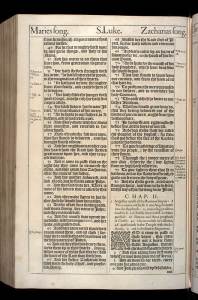Below are my top reads from 2014. They are in no particular order or genre nor have they necessarily been published in 2014.
Switch: How to Change Things When Change is Hard by Chip & Dan Heath. An interesting read with some great stories of why we make and why we don’t make the changes we do in our lives. I also would recommend Made To Stick as well.
Get Real: Sharing Your Everyday Faith Every Day by John S. Leonard. This has become one of my favorite books on sharing the gospel with others. You can read a quick review of it here.
What’s Best Next: How The Gospel Transforms The Way You Get Things Done by Matt Perman. I’m not necessarily an organized person so this book was a great help to me as it caused me to begin thinking about why I should be organized as well as some great practical advise. You can read more about the book here.
Misreading Scripture With Western Eyes: Removing Cultural Blinders to Better Understand the Bible by E. Randolph Richards & Brannon J. O’Brien. We sometimes forget that many times we read the Bible as though it were a Western text. This is a simple read that helped me to think through the way I interpret and teach Scripture.
One Way Love: Inexhaustible Grace for an Exhausted World by Tullian Tchividjian. A much needed read in a culture that is all about performance!
The Ragamuffin Gospel by Brennan Manning. If you feel like a failure in your walk with Christ and continually beat yourself up about it, this is a great book to read.
While The World Watched: A Birmingham Bombing Survivor Comes Of Age During The Civil Rights Movement by Carolyn Maull McKinstry. The most challenging quote of the book for me was: “It seemed that what people learned at their churches on Sundays about unity and love they placed on the shelf during the remainder of the week.”
Bonhoeffer On The Christian Life: From The Cross, For The World by Stephen Nichols. I’m a Bonhoeffer fan and found this book to be a great summary of Bonhoeffer’s life and theology. This is a great book to begin one’s journey into understanding Bonhoeffer.
Unbroken by Laura Hillenbrand. Before I saw the movie, I wanted to make sure I read the book. I’m glad I did. I couldn’t put it down.
Reordered Love: Reordered Lives: Learning The Deep Meaning of Happiness by David Naugle. Naugle, in this book, does well at showing that true happiness and joy comes from a right relationship with God. This is a much needed read in today’s culture that is obsessed with the search for happiness.
1 Comment






